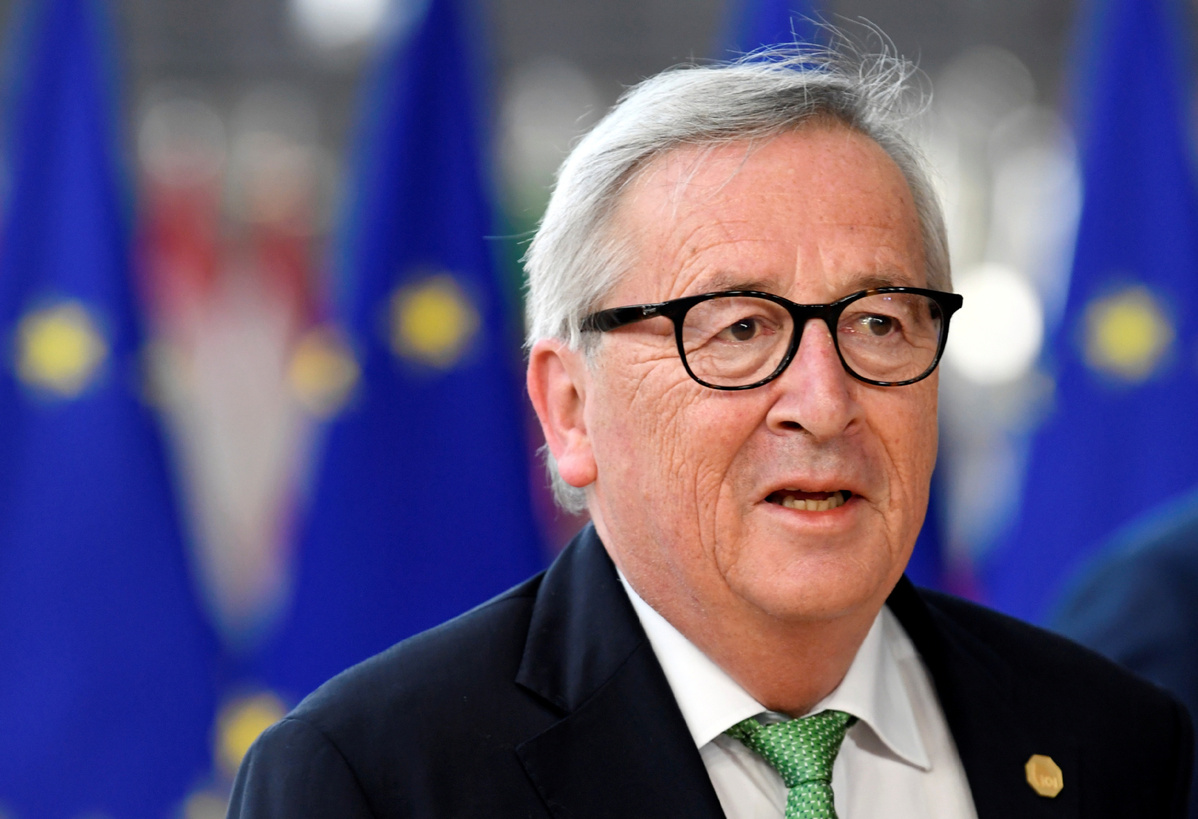Intensified battle to fill Brussels' top job
By CHEN WEIHUA | China Daily | Updated: 2019-05-29 09:40

European leaders have intensified their battle for the presidency of the executive European Commission after a European Parliament election which saw two powerful party groups losing their combined majority for the first time in four decades.
German Chancellor Angela Merkel and French President Emmanuel Macron, representing the two most powerful member states in the European Union, are leading the fight but they disagree over how to pick the next commission chief to replace Jean-Claude Juncker.
Just a day before European leaders, including the outgoing British Prime Minister Theresa May, were set to meet in Brussels on Tuesday evening to find a solution, Merkel said that Germany still favors choosing the top candidate from the winning party of the elections as the next president of the European Commission.
"We want to find a solution as soon as possible given that the European Parliament will convene at the start of June and it is naturally desirable if by that time we have a proposal from the European Council," Merkel told a news conference on Monday.
In the past, major party groups chose a candidate to be the face of their party, known as Spitzenkandidat, the German word for lead candidate. And the candidate for the winning party group is chosen to lead the European Commission.
Under this system, Manfred Weber of Germany is the lead candidate of the center-right European People's Party, or EPP, which won the election with 180 seats, albeit a loss of 36 seats from its last election in 2014.
Macron and several other European leaders no longer want to follow the Spitzenkandidat system. He told Merkel in a phone call on Monday that several "Spitzenkandidaten" are legitimate, though the selection of the new president must reflect the results of Sunday vote.
Macron told Merkel that the third-largest group in the European Parliament, the Alliance of Liberals and Democrats for Europe, or ALDE, to which his party En Marche belongs, must be part of the selection process.
Carl Bildt, co-chair of the European Council on Foreign Relations and a former Swedish prime minister, said on Twitter on Monday night that "Merkel simply can't just outvote Macron to get Weber as Commission President in the way it was done with Cameron in order to get Juncker in place five years ago," referring to former British prime minister David Cameron's failed bid to block Juncker in 2014 when EU leaders voted 26-2 in favor of Juncker's nomination backed by Merkel.
Hungary's Foreign Minister Peter Szijarto has voiced his country's opposition to Weber, accusing him of failing to respect Hungarians. "He showed a total disrespect toward the Hungarians during the campaign," Szijarto said.
Portuguese Prime Minister Antonio Costa also opposed Weber and instead backed Frans Timmermans of the Socialists and Democrats, or S&D, the current vice-president of the European Commission.
Weber, the lead candidate for EPP, said he would speak to other political groups with the aim of forming a coalition stretched across a broader political spectrum. "The task for democrats is to sit down together," he said on Monday.
It was the first time in four decades that the EPP and S&D lost their traditional majority in the 751-seat parliament.
Besides Weber and Timmermans, outgoing EU Competition Commissioner Margrethe Vestager of the ALDE is also a lead candidate for the job. It was reported that Michael Barnier, the EU chief Brexit negotiator, and several others are also eyeing the top EU job.
Reuters and Politico contributed to the reporting.
























